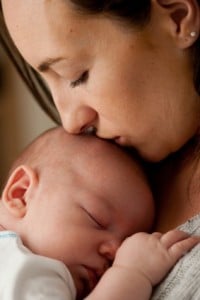
A new study, conducted by McGill University Institute for Health and Social Policy also pointed out that the United States is one of the very few countries in the world that does not mandate a paid maternity leave for parents. Most of the other countries that failed to mandate this important benefit were underdeveloped countries like Papua New Guinea, Swaziland, Liberia and Lesotho. When compared to its northern neighbor, Canada, the lack of benefits becomes downright embarrassing.
In Canada, the government mandates both work leaves and benefits for new parents. The benefit component is administered by provincial employment insurance plans. If she has worked 600 hours over the last 12 months, the new mother can take off anywhere from 17 to 52 weeks without risking her job. Employers must accept her back into her original position or, at the very least, one equivalent to her original position, and pay must remain the same as it was prior to leave.
Parents in Canada may also apply for a paid maternity leave for up to 52 weeks. The mother or father may take up to 35 weeks of parental leave after giving birth or adopting a child. Parents can share the leave however they choose and they can receive paid benefits equal to 55 percent of their average weekly income (up to $485 a week), if eligible. If they are considered “low-income,” that percentage can be increased to 80 percent, with the same $485 weekly maximum.
The United States does not mandate any form of paid maternity leave for mothers or families. They do have a brief 12 week unpaid leave through the Family and Medical Leave Act – a bill that was only introduced in 1993. This leave can cover pre-birth complications, but the leave does not last any longer than 12 weeks, even if some of the leave is used prior to birth. Additionally, employees must have worked for their current employer at least 12 months prior to the requested leave to qualify under FMLA. If birth or pregnancy complications require a leave prior to a year of employment, they may not have a job to return to. This is just one of the many gaps found within the United States’ FMLA program.
But even under the FMLA, mothers have no form of employment compensation. If they are middle class or lower income, they may not be able to afford the time off of work. As such, they return to work before they physically should. They are also forced to choose between supporting their new baby or taking time off work to spend with them.
Our bodies require time to heal properly. We need time to adjust to new schedules. And bonding with our babies in those early weeks and months is important. Fatigue, depression, separation anxiety and a slew of other emotional and health complications can arise from not taking the time we need to heal and enjoy the little beings that we work so hard to support. This can create work performance problems and lead to health problems later down the road.
As a mother from the United States, I have felt the pressures of having to choose. I’ve returned to full-time work as soon as two weeks after birth. At the time, it was only my income supporting our growing family and I had to make a choice – leave my newborn with a daycare provider and return to work or risk losing everything because I had no paid leave to compensate for my time off work. It’s not a very fair choice to have to make but it is a choice that many American mothers make each and every day.
Wikipedia has a comprehensive breakdown of every country and what they offer for maternity leave. Many countries, even some of the poorest offer 12 weeks 100% paid maternity leave. The U.S. definitely has to review their maternity leave policy and do more support young families.
Related Articles:
- Sophia Takes the Top Slot for Girl Names; Jacob Still Number One
- United States Ranked 25th of Developed Countries for Raising Children
- Mom Released Home 4 Hours after Delivering Baby






